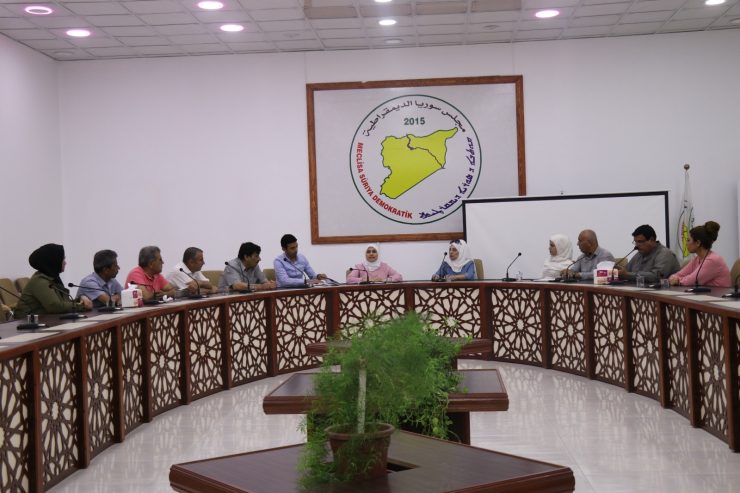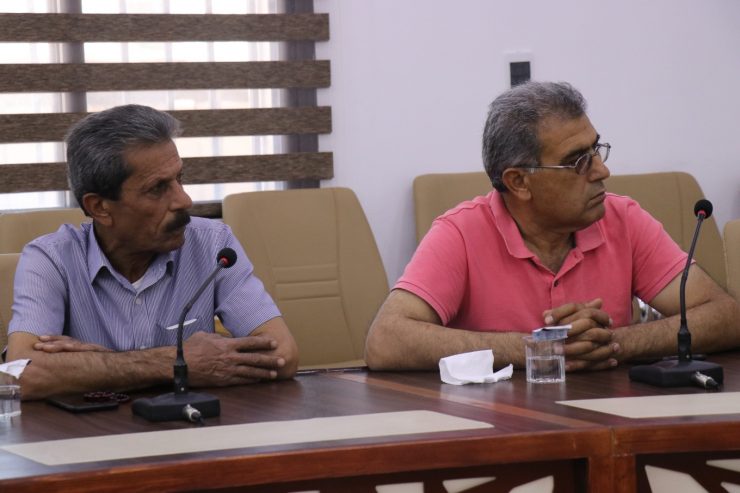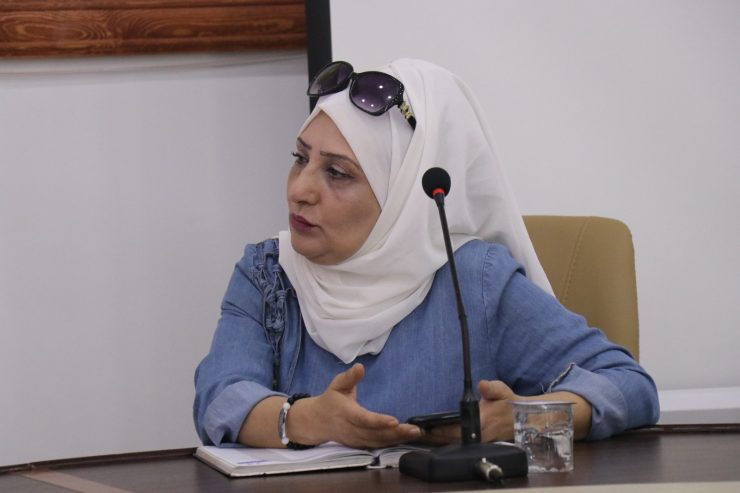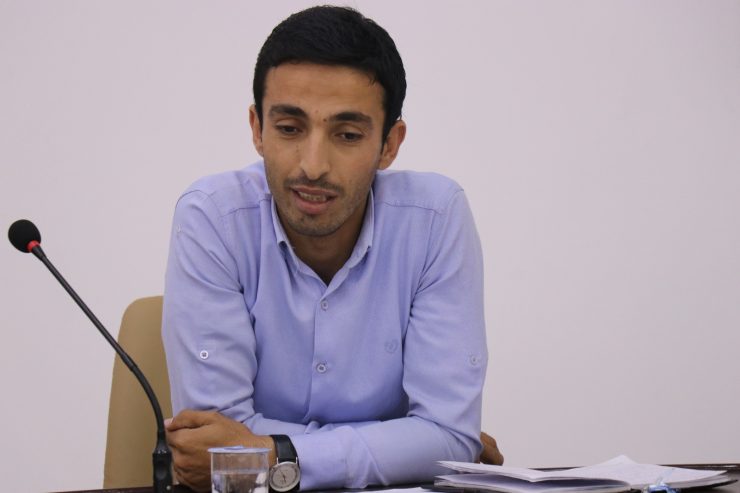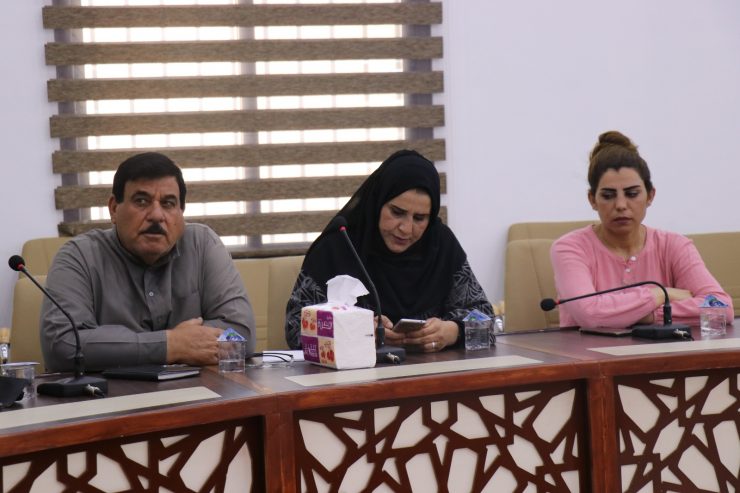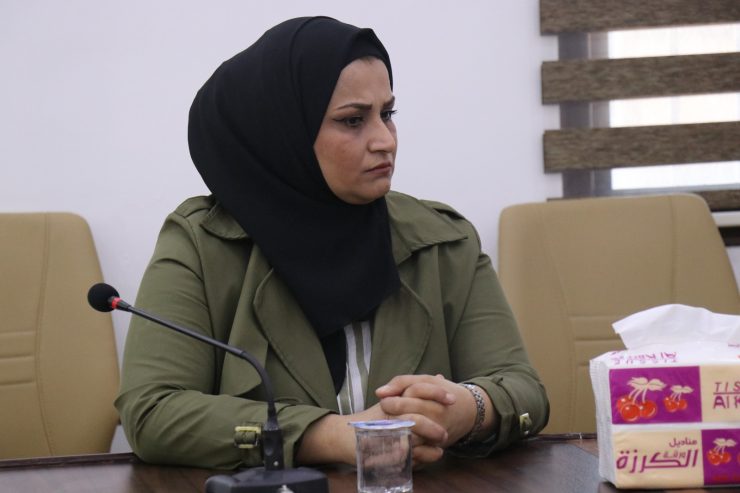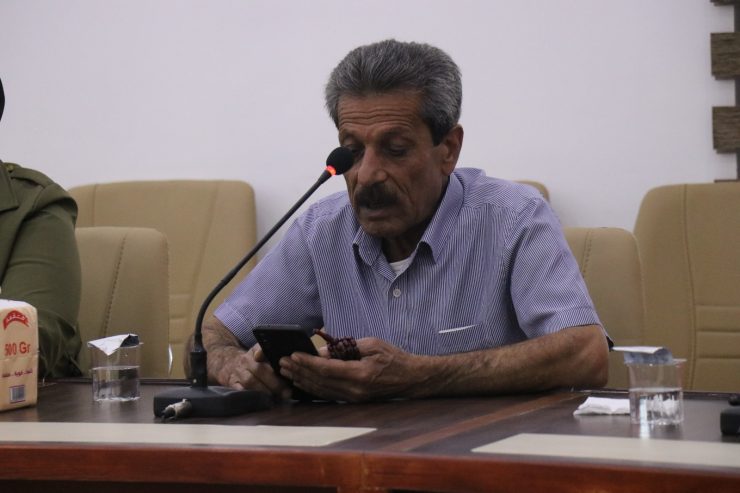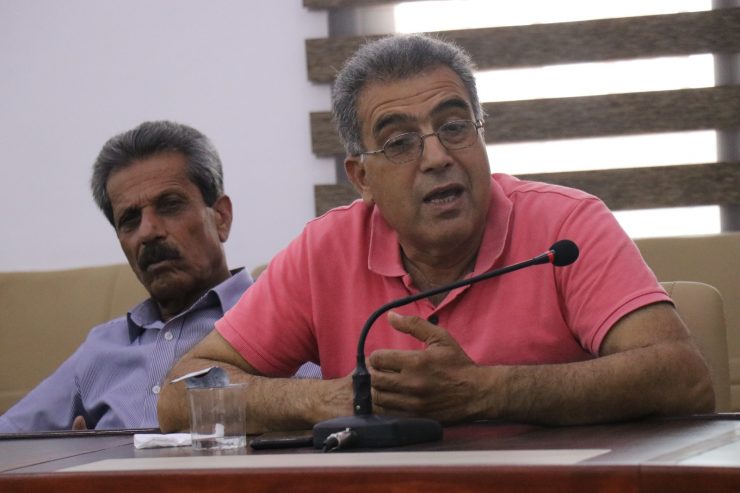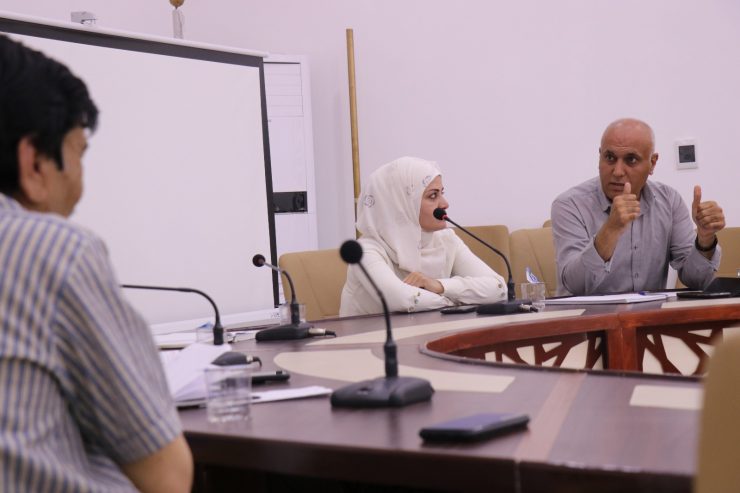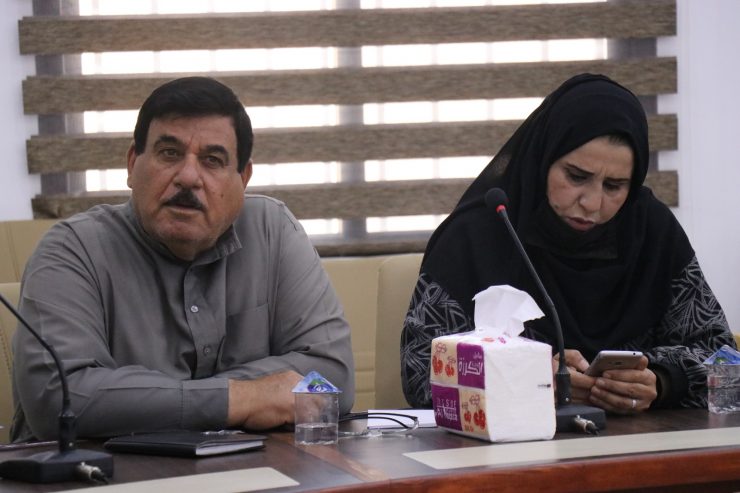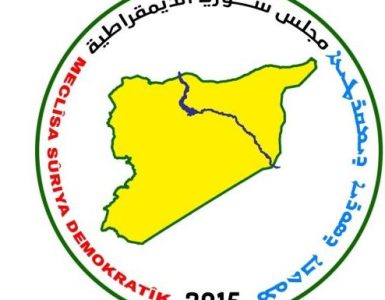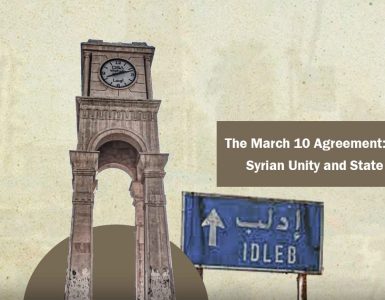Today, on Monday, the Syrian Democratic Council held a workshop called for by the Relations Bureau, in cooperation with the political parties operating in Raqqa, at the council’s center in the city.
That was to focus on the political developments and know the views of the political parties on the paths of normalization (Turkish-Syrian normalization and Arab-Syrian normalization), and determining its effects on the region and its outcomes.
The workshop was moderated by Jiyan Malla, a member of the Presidential Council of the Syrian Democratic Council, and during which Kamel Al-Hazbar, a member of the Relations Bureau, spoke about “the democratic transition and the need for national mechanisms for it” and “the SDC’s welcome to the Arab movement in particular and the international movement in general regarding the Syrian issue”.
Al-Hazbar called for the need to create a new phase in which the Syrians would get their rights in light of their tragedy, which can’t be ended without an integrated political process in which the Syrian national actors participate without exclusion.
Then the attendees exchanged views and opinions, as the representative of each party read his party’s vision on these developments in terms of their pros and cons, and they agreed to advance a political resolution in accordance with the aforementioned conditions, international resolutions and covenants, especially the Resolution 2254.
In a related context about international covenants, Azad Barazi, a member of the Kurdish Democratic Party in Syria, said that “Despite the international resolutions that were issued, the Syrian people do not exist because they have little knowledge of them, which requires an action”.
With regard to the role of the Syrian democratic national parties and powers, Barazi urged them to unite and called on them to make the regions of northeastern Syria as a base for start and change, especially the Syrian crisis has a new phase.
Nawal Al-Khalaf, a member of the Women’s Bureau of the Democratic Alliance Party, considered that the path of the Arab normalization is incomplete, and the return of Damascus to the Arab League does not mean an end of the crisis, in addition to the continuation of sanctions and the Caesar Act.
For his part, Ismail Al-Muhammad, the official of the Syrian Construction and Development Party, touched on the Saudi position, the Jordanian position, and the conditions that were agreed upon regarding the Jeddah-Amman agreement. Al-Muhammad supported the establishment of a pluralistic, decentralized democratic regime without excluding anyone.
Muhammad Ali Darwish, a member of the Kurdish Democratic Unity Party relations in Syria, called on everyone to be serious, to cooperate and create an effective and active community on all aspects.
Regarding the importance of the workshop, the organizers mentioned that it is as a plan of action for the next stage with parties and elites, attracting active Syrian figures and strengthening the bonds of cooperation among them.
At the end of the workshop, a working paper was agreed upon by the participants, and it contained several points, the most prominent of which was enhancing interaction among political parties by meetings, dialogues, and holding workshops on the most appropriate form for the future Syria and its regime of governance as a step to advance the political resolution and enhance spaces for joint national action among the societal elites in Raqqa.


